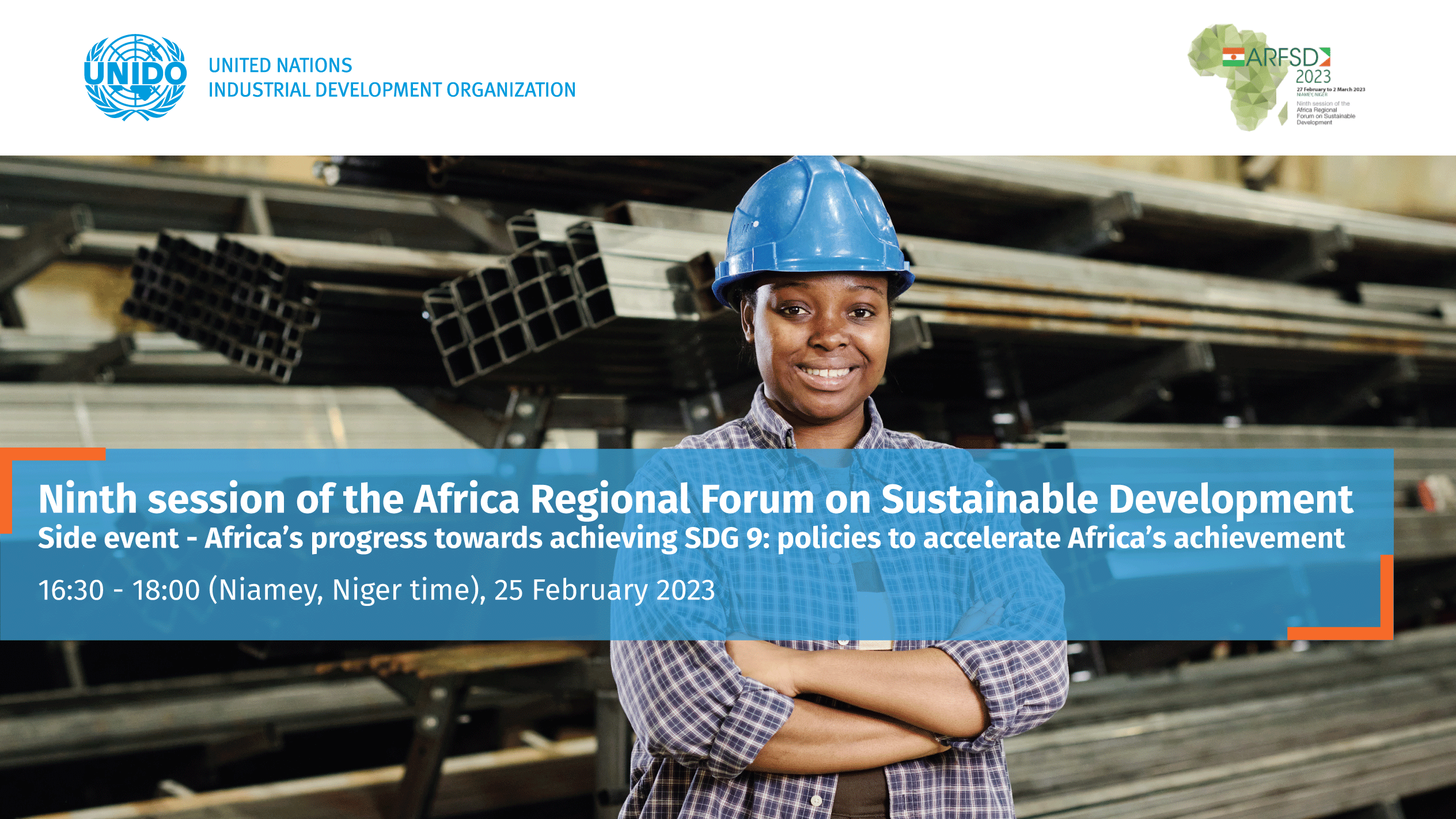UNIDO contributes to the Africa Regional Forum on Sustainable Development 2023
27 February 2023

Niger – As a contribution to this year’s review of Sustainable Development Goal (SDG) 9 by the High-level Political Porum (HLPF), the United Nations Industrial Development Organization (UNIDO) presented research on Africa’s progress at a side event of the the ninth session of the Africa Regional Forum on Sustainable Development 2023 (ARFSD 9). The event provided an opportunity to facilitate knowledge and experience-sharing in national policies and innovative solutions, especially in the areas of skills development and small and medium enterprise (SME) growth, that could contribute to SDG 9.
Opening the event, Cristiano Pasini, Director of UNIDO’s Division of Capacity Development, Industrial Policy Advice and Statistics highlighted that while UNIDO contributes to all goals of the 2030 Agenda, SDG 9 has a special relevance for the Organization as it recognizes the role of industry, innovation and infrastructure in sustainable development.
Inclusive and sustainable industrialization is a primary source of income generation and allows for rapid and sustained increases in living standards.
Nobuya Haraguchi, Chief of UNIDO’s Industrial Policy Research Unit, presented Africa’s progress towards achieving the inclusive and sustainable industrialization aspect of SDG 9. Research findings suggest that the recovery of the world economy from the COVID-19 pandemic has been uneven. The world’s industrial production has recovered to pre-pandemic levels by the end of 2020, however, Africa’s industrial production reached pre-pandemic levels only by the end of 2021. The gap between Africa’s industrial production and the rest of the world has been widening recently.
During the panellist session, Kofi Addo, Team Lead, One District One Factory (1D1F) at Ghana’s Ministry of Trade and Industry, shared his observation that “targeted industrial policies are keys to develop local SMEs, even more so, the implementation of the industrial policies. The 10-Point Transformation Agenda could be a good example of this”.
Mohamed Housseni Madi, Deputy Director General, Comoros National Investment Promotion Agency (ANPI), added, “Comoros setup its One-Stop-Shop in supporting the formalization of local firms. Worldwide, SMEs are responsible for more than two-thirds of all jobs worldwide, perhaps more in Africa, and the manufacturing sector is positioned as the backbone of economies for developing countries and as engine of economic growth”.
Relating to the quality framework, Aka J.J. Kouassi, Chief Technical Adviser at UNIDO, highlighted, “National and regional quality framework, demand for quality and standardization in the market, and quality infrastructure and institution, are a few key factors that drive successes of national and regional programme for the development of quality in Africa.”
Phyllis Wakiaga, Senior Private Sector Development Advisor at the Tony Blair Institute for Global Change, shared, “The Government of Kenya established training centres for students after school, apprenticeship training, industry attachment programmes, and incentives for local workforce training to groom Kenyan industries.”
Victor Djemba, Chief of UNIDO’s Regional Coordination Division (Africa), moderated the side event and concluded with a key message that, in the context of Africa, industrialization is one of the drivers of sustained prosperity.
For more information, contact:
Nobuya Haraguchi, Chief, UNIDO Industrial Policy Research Unit